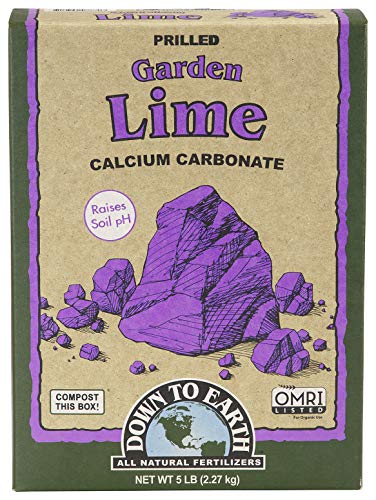Lime has been used in gardening and agriculture to augment the soil and adjust its composition to produce better plants and crops. Processed lime is available in several forms with distinct and similar characteristics as well as effects and applications. How exactly do they differ? Read on and find out what our research revealed.
Garden and agricultural lime refer to the same soil amendment made of calcium carbonate. Hydrated lime is a calcium hydroxide compound. They are generally applied to increase the soil pH level, making it more alkaline.
Hydrated lime acts faster and is more effective. Yet, it is rarely used by gardeners since it can cause chemical burns when handled.
Which is most suitable for your plants and crops? Plants do not need lime to survive, but the effect and supplemental minerals they provide are essential to their growth. The article includes a discussion regarding their chemical composition, application, use, and effects. Plus, a brief explanation of dolomite lime and its relative efficacy as an amendment.
Processed Lime And Its Forms
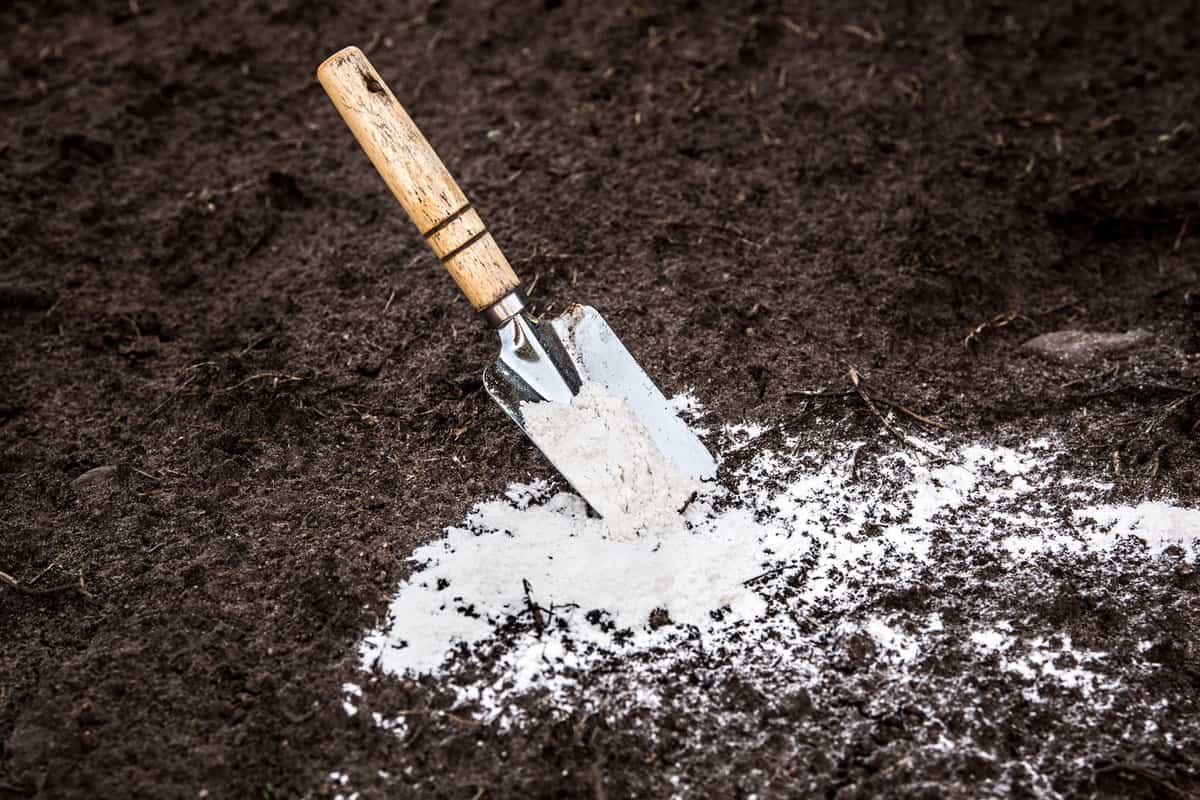
Lime is a naturally occurring inorganic material high in calcium content derived from mineral rocks. Limestone is extracted from mines or quarries and processed for multiple uses in construction, the food industry, and agriculture.
Processed lime comes in several forms in terms of chemical composition designed for specific applications and uses. In the context of plant soil amendment, garden, agricultural and hydrated lime are often interchangeably used to refer to a single compound.
There are, however, significant differences that need to be distinguished for their proper application.
What Is Garden Or Agricultural Lime?
Garden or agricultural lime refers to the same compound chemically known as calcium carbonate. It is a highly alkaline substance that alters the soil’s pH by lessening the degree of relative acidity.
Lime deposits contain essential trace minerals, which are beneficial, especially to crops and grasses as well as certain vegetation. It makes the soil fertile by altering its general composition. Nitrogen, phosphorus, potassium, and calcium are added to the medium.
Garden lime provides plants with calcium and enhances yield as well as the plant’s root system and in turn improves nutrient uptake.
Use And Application
The best way to apply garden lime is through manual soil amendment. You will have to augment the garden bed or growing medium by adding the right amount of lime. It will take two to three months before the powder take effect, and the soil composition is altered.
Do not plant any crops and vegetation on the altered medium during this period, as it will burn the roots and harm the seeds. The product is available in powder or pellet form.
Check out Down To Earth Organic Garden Lime on Amazon.
What Is Hydrated Lime?
Hydrated lime or calcium hydroxide is a more potent form that acts more rapidly in elevating the soil's pH. It is rarely used in gardens because of its toxicity and possible chemical burns once exposed.
It is mostly utilized in construction as well as the processing of food like pickles, extracting juice from sugarcane, and several other food products in plants and livestock.
Calcium hydroxide is an active ingredient in fungicides that treat fungal infections that may develop in fruit trees. Since hydrated lime is highly alkaline, it alters the acidic environment in which pathogens form and thrive.
During application, precaution is necessary since it negatively impacts our health. It is a highly concentrated form of lime that can harm the skin and eyes upon contact as well as the lungs once inhaled. Wear gloves, long sleeves, pants, a face mask, and protective goggles as a safety measure.
Do not immediately plant vegetation after application so as not to burn the roots and seeds. Let the soil sit for at least two weeks or a month to allow absorption of the substance.
Check out Hydrated Lime For Soil on Amazon.
Why Is Soil pH Significant?
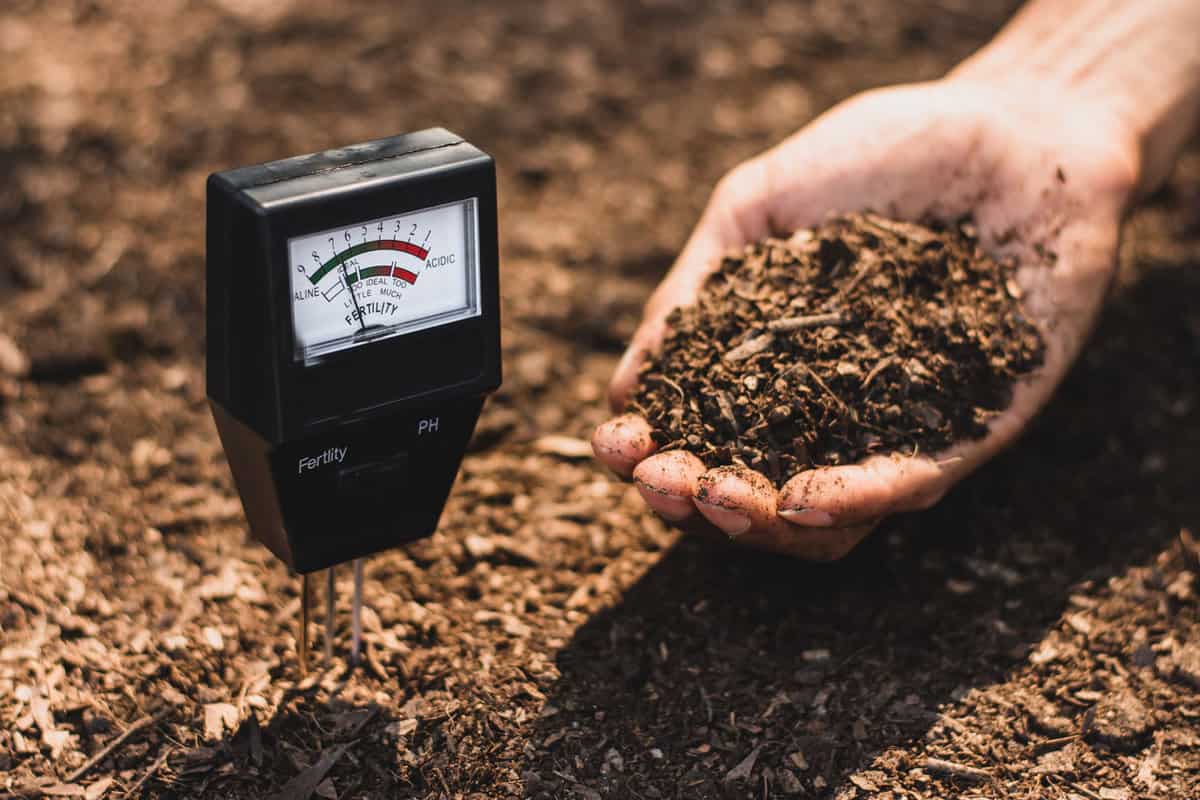
To fully appreciate the application of garden lime and its effect on soil chemistry, it would be necessary to have an overview of pH.
pH, or potential of hydrogen, is a reference to the relative acidity or alkalinity of your plant's soil or growing medium. It is an essential factor that directly influences the growth and development of plants as equally important as light, water, temperature, and other conditions.
Over time, soil tends to turn acidic due to rain and watering, fertilizer application, constant uptake of plant nutrients, leaching, and crop rotation. Consequently, minerals are depleted, and the medium's capacity to sustain growth is decreased.
How Does Increasing The Soil pH Affect Plant Growth?
In essence, acidity affects biological processes favorable to plant development.
Acidic soil depletes plant nutrients like nitrogen and phosphorus while increasing toxic levels of aluminum and manganese. Increasing the pH will restore nutrient availability and uptake.
Acid can adversely affect the biochemical processes of earthworms, essential bacteria, and other organisms. Lime application will create a more optimal soil environment favorable to plant development by aiding beneficial microorganisms to thrive.
Fertilizers, soil additives, and amendments function more effectively when the soil pH is increased since the absorption of plant nutrients is enhanced. A more alkaline soil composition deters the proliferation of fungi that thrive in acidic environments.
How Do You Determine Soil pH?
Test kits are available but are limited to indicating whether your soil is basic or acidic. The best way to determine the soil pH is through a professional laboratory sample analysis.
They can provide the most accurate level of acidity as well as the nutrient component available or lacking in the soil.
Using the right type and amount of garden lime would be based on the recommendations following the results and findings.
What Plants Grow In Alkaline Soil?
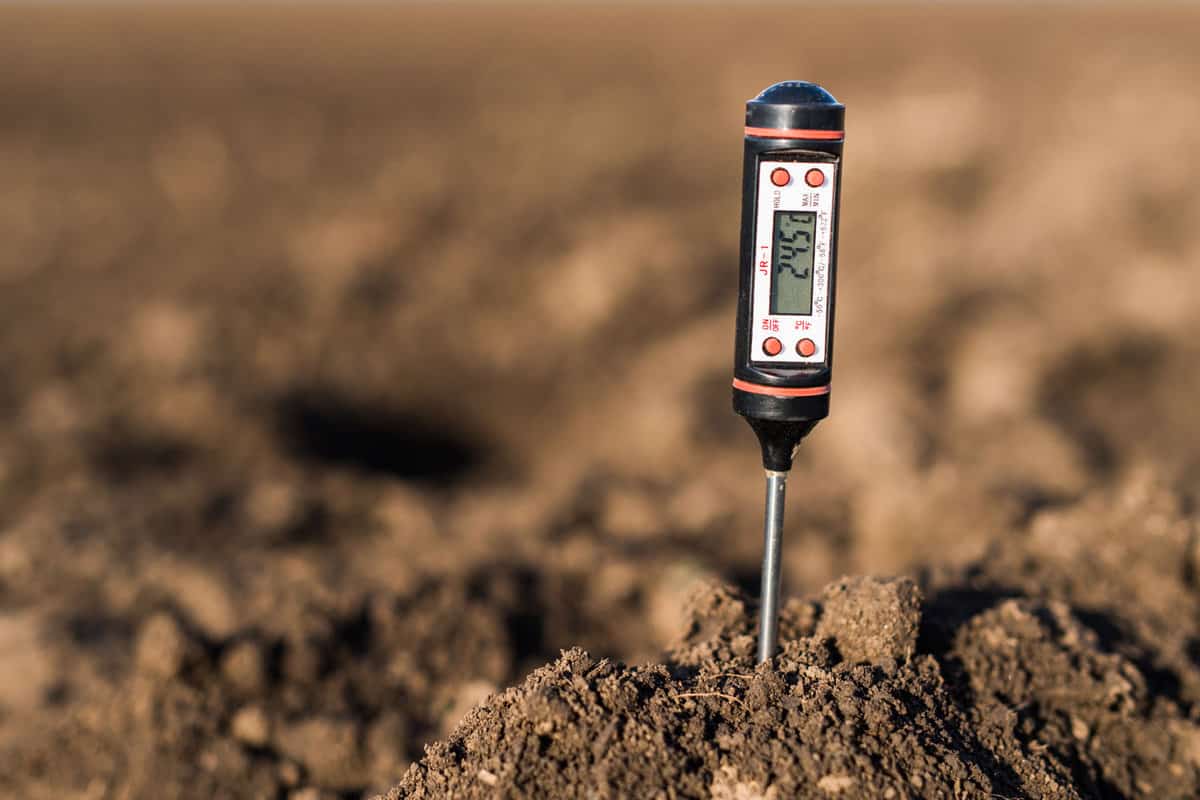
Garden lime is applicable to certain plants that prefer alkaline environments. It is necessary to determine which trees, shrubs, vines, annuals, and perennials you intend to grow are accustomed to soils with a high pH level.
Examples of trees include:
- Common beech
- European ash
- Horse chestnut
- Apple tree
- Ornamental cherry
Shrubs:
- Arborvitae
- False cypress
- Contorta
- Rock cotoneaster
- Forsythia
- Dwarf deutzia
Annuals:
- Bachelor buttons
- Celosia
- Geraniums
- Marigolds
- Sweet alyssum
Perennials:
- Bearded iris
- Black-eyed Susan
- Columbine
- Easter lilies
- Lavender
Vines:
- Boston ivy
- Kiwi
- Winter jasmine
What Plant Grow In Acidic Soil?
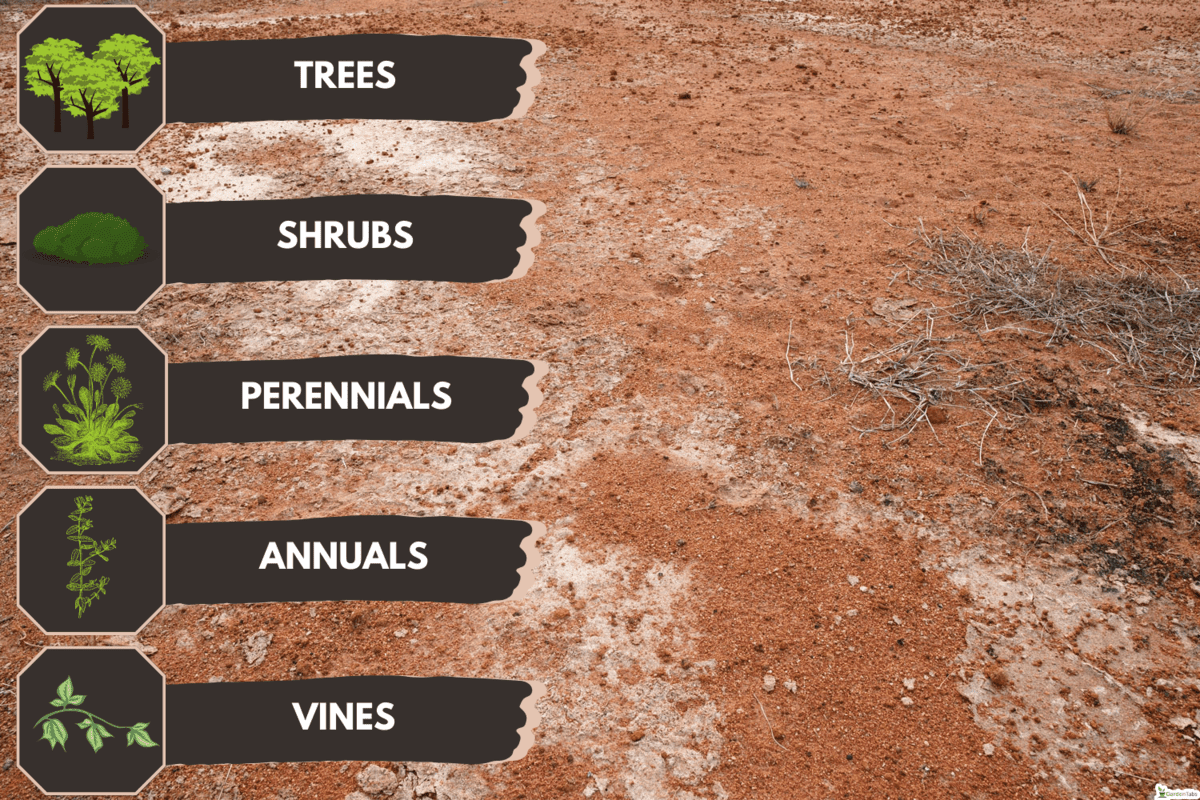
If you are growing plants that thrive in acidic environments, it is not necessary to amend the soil with garden lime. Instead, you can add peat moss to the growing medium to lower the soil’s pH level.
Here are examples of trees, shrubs, perennials, annuals, and vines that prefer acidic growing conditions:
Trees
- Beech
- Dogwood
- Mountain ash
- Oak
- Sourwood
- Willow
Shrubs
- Blueberry
- Doghobble
- Hydrangea
- Rhododendrons
- Zenobia
Perennials:
- Butterfly weed
- Bleeding heart
- Crested daffodil
- False indigo
- Iris
Annuals:
- Annual vinca
- Bacopa
- French marigold
- Nasturtiums
- Pansies
- Petunias
Vines:
- Persian ivy
- Trumpet vine
Is Dolomite Lime Good For Soil?
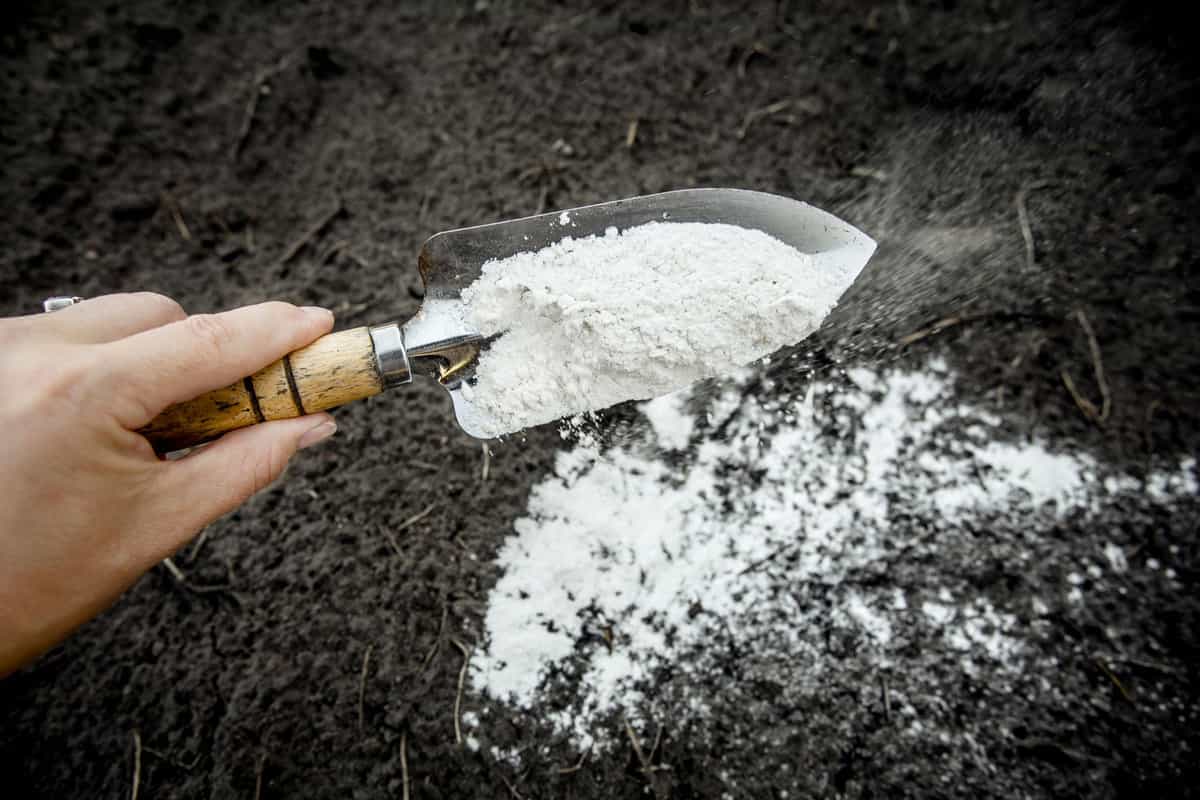
Dolomitic lime, also known as quicklime or magnesium carbonate, is a form of garden lime also used to increase pH levels as well as provide plants with magnesium and calcium.
Several factors influence the effect of dolomite lime when used as a soil amendment. It may or may not be a good addition to your plant’s growing medium in terms of soil condition and the product’s chemical composition.
A growing medium does not always need to be amended with quicklime. In most cases, the problem lies within the proportions of organic and inorganic matter present in the planting bed.
If the soil lacks micronutrients, including calcium and magnesium, then you can use dolomite lime and apply it as fertilizer. If, however, the medium is already alkaline, you may want to veer off with using quicklime and opt for plant food specifically manufactured with Mg and Ca.
Check out Organic Dolomite Lime on Amazon.
Can You Apply Garden Lime On Potted Plants?
Garden lime can be applied on potted plants as long as the potting mix or the vegetation requires it. However, note that most commercially-made growing mediums are already composed of lime, so it may not be necessary to augment the soil.
Potted plants should be amended with the right amount of lime to prevent the presence of toxic substances like manganese, iron, and phosphate. Too much alkalinity, however, will result in nutrient deficiency.
In Closing
Inasmuch as garden lime and hydrated lime increases the soil’s pH level, garden lime is safer to use and mostly applied in planting mediums. It is important to test the acidity and alkalinity of the soil before augmenting it with the product. We hope the article helped you differentiate between these two products.
You might also find these topics informative:

